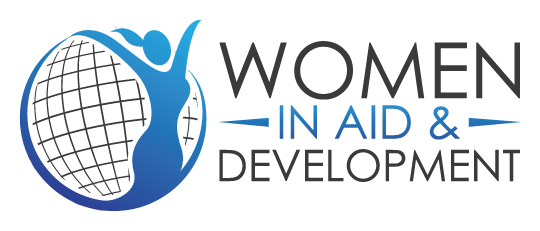5 minutes with Jill Scanlon
WiAD: How did you first get involved with aid and development work?
Jill: Changing the balance of my career focus about 11 years ago was the main catalyst for me. I left a 24-year stint in the world of international news and broadcasting and decided to explore a long-held passion for the world and what was happening in it. I did this through further study, through volunteer work with NGOs, and throwing myself into the discussions, debates and knowledge sharing that was offered at conferences, seminars and symposiums – whatever I could access to feed my interest.
With this new path, media and journalism took on a smaller role and my passion for international development, and all that encompassed within my reach, was given the chance to spread its wings, leading me to where I am in the sector now, using my constantly evolving skillset and knowledge to explore opportunities.
WiAD: Can you share more about your role in the higher education sector and what it is you do?
Jill: I work as a Media, Communications and Advocacy consultant/adviser within the sector, both on a volunteer basis and on contract. I have also spent the past 5 years working as a sessional lecturer in the field, after an opportunity emerged during COVID to put my knowledge and experience to a different purpose, yet another addition to my evolving skill set. I’ve also had the great fortune to work and live overseas, spending a couple of years in the Pacific, as part of my focused development journey over the past decade, as well as establishing strong, long-term relationships and friendships within the sector.
WiAD: What does women’s leadership mean to you?
Jill: If there is one lesson I’ve learnt, or key piece of knowledge I’ve gained, over my time in the field, it’s that women are an essential ingredient in the workings of the development sector – at every level!
The most obvious of which has been the difference women in leadership roles make to not only the key discussions, but more importantly to the decision-making processes.
WiAD: When did you become involved with WiAD and why?
Jill: Like most, I came to WiAD through attending an event; this first one for me was in mid-2020 during the pandemic, so it was online. I had been aware of Chris (WiAD Chair) a few years before around 2016, through her Board participation with a small NGO I had supported since 2014, and still have close ties to.
Due to the pandemic, I had returned from living overseas rather abruptly and found myself working and connecting with the world online. So, looking to explore those connections, especially given my main work focus on international development, was only natural.
And that’s where it began – online events; then in-person events in Melbourne once we were allowed to re-engage in society; then volunteering at these events, especially with my media/comms skillset; then helping Chris through taking on the facilitator’s role in Melbourne, to where we are now, which is facilitator, Board member and on two of the organisation’s sub-committees.
WiAD: How would you describe the sector when it comes to women's leadership roles?
Jill: I think the best way to describe it is through that well-worn phrase ‘a work in progress’. Given that the majority of the workforce, both voluntary and paid, within the sector is women, it is good for the natural emergence of many of those women into more senior and leadership roles, both in governance and as practitioners.
There are, of course, still many hurdles for women in leadership roles, but I think the development sector is recognising the impactful contribution being made by women in the field, and not only allowing but enabling women to fill these roles. But again – it’s a work in progress!
WiAD: Did you find it difficult to get roles, or face any difficulties when you first started in the sector?
Jill: Yes, much of the work I did was voluntary, just to gain the experience, do some networking (which was never my strong suit) and create opportunities where possible. Women also tend to undervalue their capabilities, and so don’t always push as hard for roles in what is a very competitive, small market.
WiAD: A message of encouragement for young women looking to enter the aid & development sector
Jill: My advice, learned over the past decade or more, is that the development sector is a small but busy field, where opportunities are more often created, not just offered up, through persistence and the willingness to sometimes move outside your comfort zone.
Volunteer work, while not always fiscally practical, is an invaluable learning ground, as is paying attention or being aware of all that is happening, being discussed and making news, in the sector on any given day.
————————————————————————————————————————————————
A huge thank you to Jill for her time. We appreciate her for sharing her story and such invaluable insights!
Jill works as a media, communications and advocacy consultant/adviser within the sector. She is also a Director at WiAD and the Melbourne Events City Leader.

